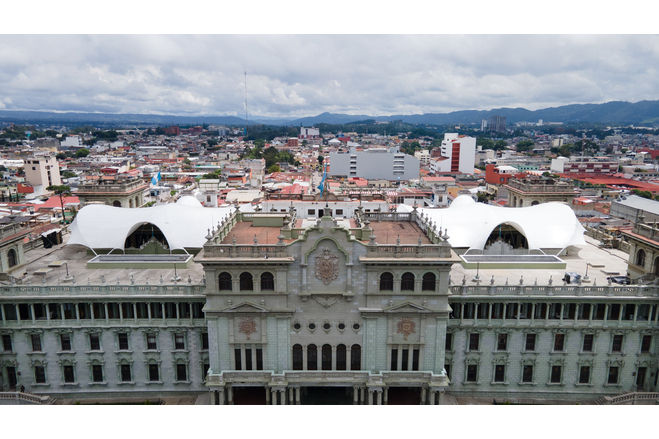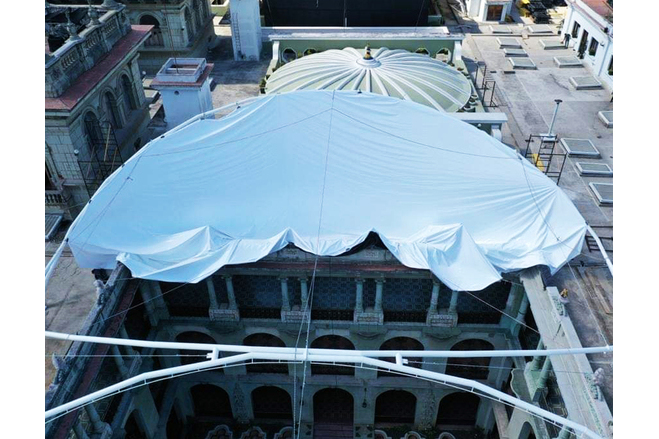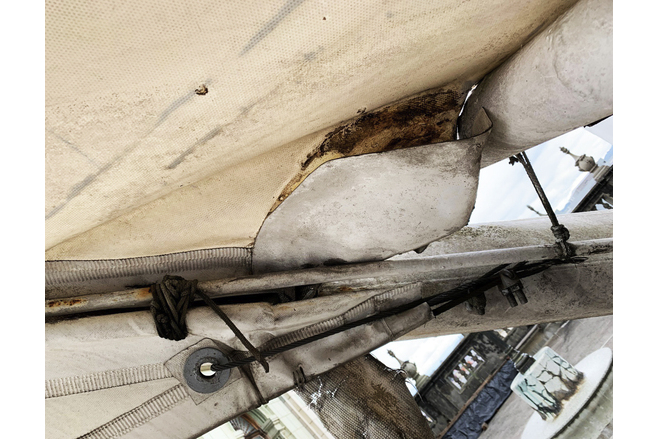Palacio Nacional de la Cultura
General information
-
Location address
Guatemala
-
Location country
Guatemala
-
Year of construction
2004
-
Year of dismantling
2021
-
Year of replacement of membrane
2021
-
Name of the client/building owner
Ministry of Culture, Guatemala
-
Function of building
Historical buildings & monuments
-
Degree of enclosure
Hybrid structure
-
Climatic zone
Tropical - hot and wet all year
-
Number of layers
mono-layer
-
Type of application of the membrane
covering
-
Primary function of the tensile structure
- Rain protection
- Sun protection
Description
In 2004 a membrane cover was placed above 2 inner patios as rain cover, in 2010 however one of the roofs materials was torn due to poor design and the other one began to suffer both in material and structure. Even though a morphological box proposing a variety of new designs taking into consideration form, function, stress forces, weight, impact were presented, according to national conservation laws, removing the structure and putting into place a new design was prohibited.
Project: A new plan was put into place consisting of three main aspects:
• Conduct a topographic survey in order to analyze both general and specifics points of the existing structure such as general dimensions, diameters of primary and secondary arches, anchorages, etc.
• Make a structural analysis using a virtual wind tunnel which determined that the structure was sub designed 2.5 times compared to what it needed, so structural reinforcements were designed and put into place all along the structures of both patios
• Add two lateral wings to each cover for better protection of sun and rain and adding extra stability to the structural system itself.
Installation: The mounting process was difficult since it´s a heritage building, the use of a mechanical crane was not an option: everything, from the materials to the structure and the membrane was uplifted by hand.
The final project was highly satisfying for both the client and the contractor. Achieving a successful project is always gratifying: this especially had a different sense of challenge being an historical landmark of the country. Therefore, it demanded nothing but the best from the material provided by Sattler PRO-TEX (Austria), up to the intervention on the building and its surroundings including the inner facades of the patios and the decorative elements.
Description of the environmental conditions
Material of the cover
-
Cable-net/Fabric/Hybrid/Foil
Fabric
-
Type (code)
Sattler ATLAS Architecture Type II TFL
Main dimensions and form
-
Covered surface (m2)
2400
Duration of use
-
Temporary or permanent structure
Permanent
Involved companies
-
Architects
Carlos Armendariz
Ericka Escobar
-
Engineers
crearquitectura
-
Contractors
crearquitectura s.a.
-
Suppliers
Sattler PRO-TEX GmbH
Editor
-
Editor
Evi Corne






